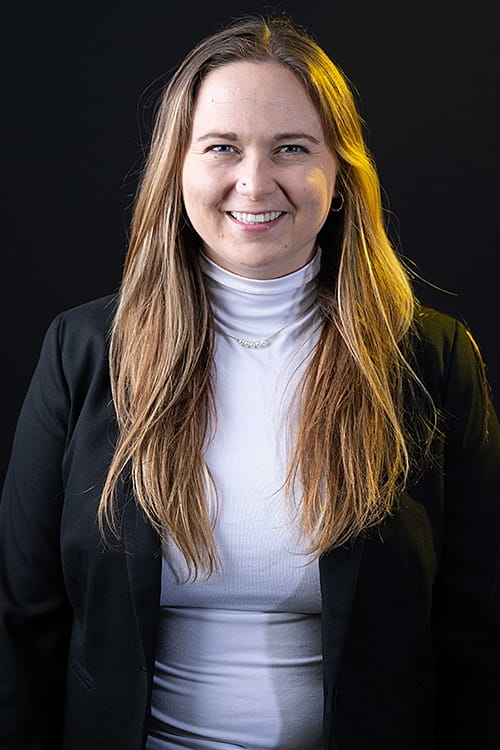
Amanda Sursely, PhD student, epidemiology
Evaluates community health programs
“Amanda is an invaluable member of the PRC-RH (Prevention Research Center for Rural Health) team. She is also a unique public health researcher… Amanda is a critical thinker and committed to hearing narratives and blending those with numbers. Because of that, she has deeply impressed our community partners.” -Heidi Haines, PRC-RH center and research support coordinator
Hometown: Moses Lake, Washington
Faculty mentor/advisor: Rima Afifi, PhD, professor, community and behavioral health, director, Prevention Research Center for Rural Health, College of Public Health
What is your degree program and expected graduate date? PhD Epidemiology, Expected graduation: spring 2025
Please describe your research: In my research with the Iowa PRC-RH, I’ve been involved in several projects that aim to understand and intervene on the structural factors that impact health in rural communities. In partnership with existing community organizations, we have worked on projects related to housing insecurity, food insecurity, employment, and education. My part in these programs has been primarily focused on program evaluation—through conducting and analyzing interviews of individuals involved and impacted by this work, we work to improve and better tailor our interventions to the communities they impact.
In simple terms, why does this research matter? Traditional public health interventions have focused on individual behavior modifications—such as quitting smoking or increasing exercise. These interventions fail to address the broader social and structural factors that impact health. Multi-level interventions that address several key factors are critical to lasting changes in health outcomes and to reduce disparities across populations. The work at the PRC-RH is informing such interventions and supporting communities that are trying to implement programs that do this.
How soon after starting at the University of Iowa were you able to participate in research? I started research in the spring of my first year of my master’s program.
How has being involved in research made you more successful at the University of Iowa? My involvement in research has been the most critical supplement to my classroom education—I have had the opportunity to apply the concepts that I’ve learned, but most importantly to learn from individuals who are actively engaged in the work I admire and aspire to.
What are your career goals and/or plans after graduation? In the future, I hope to use the knowledge and skills I have gained to conduct research that will inform practice and polices to reduce health inequities. I am still learning and refining my goals and hope that over the next few years I will gain a better understanding of how to optimize my skillset in academia and public health practice.
Banner location: not on display—
